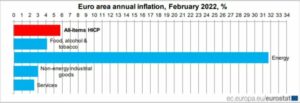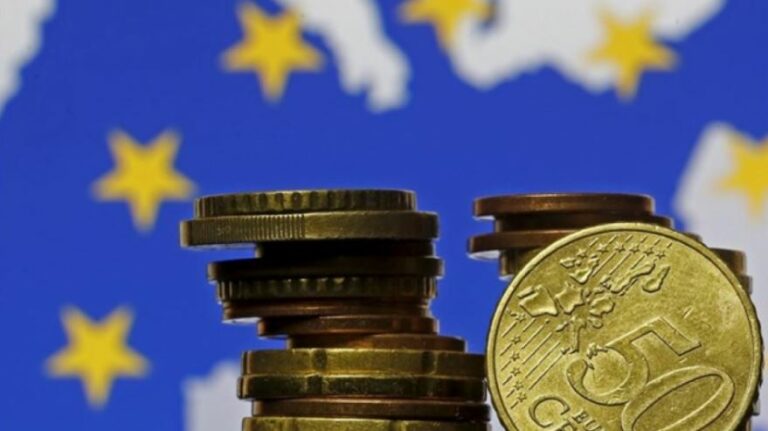Inflation in the Eurozone hit a record high in February, according to Eurostat, as it stood at 5.8% year-on-year, up from 5.1% in January, raising questions about when the ECB will intervene to alleviate the burden on consumers, at a time when Russia’s invasion is causing turmoil in the world economy.
As can be seen from the table below, inflation in Greece increased to 6.3% in February, from 5.5% in January.

According to Eurostat data, the highest annual inflation for the previous month was recorded in Lithuania (13.9%), Estonia (12.4%), and Belgium (9.6%), and the lowest in France (4.1%), Finland, and Malta (4.3%).
Recent data confirm the growing pressure on Europe’s households increasing pressure on the ECB to take action and intervene to help reduce inflation.
Inflation in February is at its highest level since these data for the euro area began to be recorded in 1997.
A key factor affecting the rise in inflation, of course, is energy prices, which have soared by almost 32%, and the problem will be further complicated by Russia’s invasion of Ukraine, as Russia, one of the main oil producers and exporters, has suffered heavy sanctions and restrictions, raising fears of a blockade on oil supplies – although this has not yet been implemented.
Ask me anything
Explore related questions





